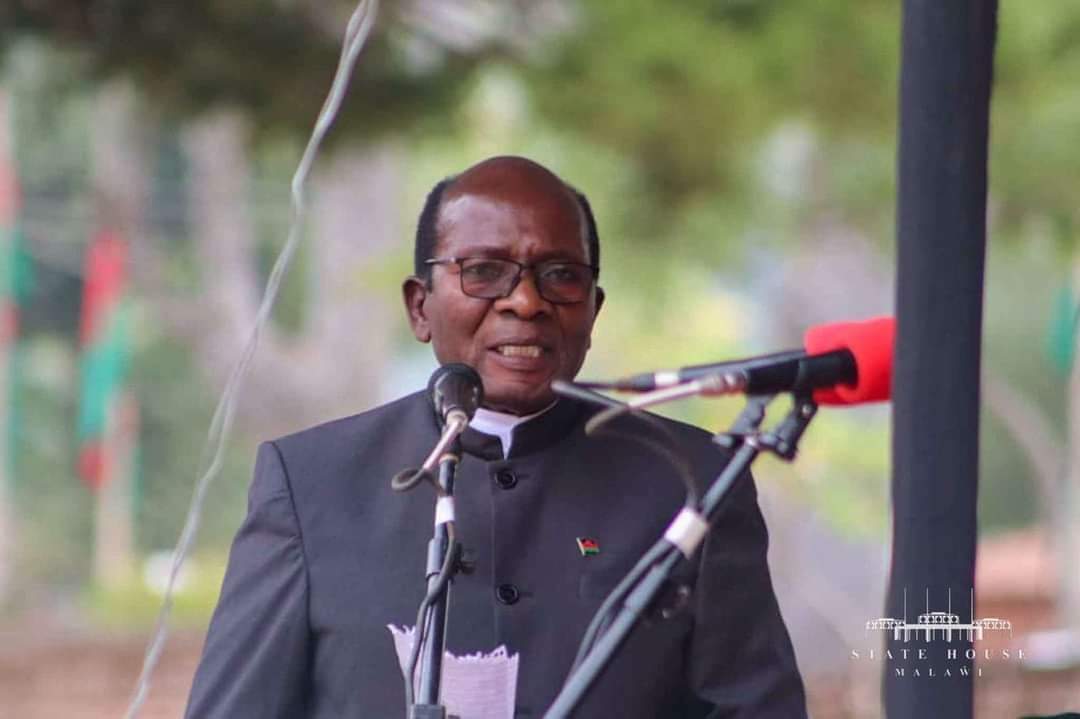Last week the U.S. Justice Department charged three current and former executives of a U.S.-founded voting machine company with paying bribes to win lucrative election contracts in the Philippines.
Roger Piñate, a Venezuelan citizen and president and co-founder of Smartmatic, a voting machine vendor founded in Boca Raton, Florida, was charged with two other current and former Smartmatic executives — Jorge Vasquez, a U.S. citizen and the company’s former vice president of hardware development, as well as Elie Moreno, a Venezuelan-Israeli who oversaw Smartmatic’s Philippine contracts.
According to U.S. prosecutors, the three conspired to pay at least $1 million in bribes to Juan Andres Bautista, former chair of the Philippine elections commission. The bribes helped the company win contracts worth more than $180 million to supply about 90,000 voting machines and related election services to the Philippines for its 2016 national elections, authorities say.
The co-conspirators allegedly overcharged $10-$50 per unit and put the excess earnings into slush funds from which they paid kickbacks to Bautista. To hide the payments, they allegedly created bogus contracts, purchasing agreements and loans with several shell companies to launder the money to Bautista through bank accounts in Europe, Asia and the U.S. Bautista, who has also been indicted, allegedly passed the $1 million bribery money to a family member who used it to purchase a 2-bedroom condo in the tony Pacific Heights neighborhood of San Francisco.
Smartmatic has suspended Piñate and one other defendant who still works for the firm, but emphasized that U.S. authorities have not accused the company itself of wrongdoing.
“No voter fraud has been alleged, and Smartmatic is not indicted,” the spokesman said.
Many news stories covered the allegations last week and mentioned the false claims of election rigging against the company made here in the U.S. by supporters of former President Donald Trump over the 2020 presidential election. Smartmatic has filed $2.7 billion defamation lawsuits against Fox News, other right-leaning news organizations and Trump supporters over those claims.
But the stories failed to mention that the company and its owners have a long history of controversy, stemming in part from their Venezuelan roots. These controversies have impacted Smartmatic’s attempts over the years to achieve success in the U.S. elections market, though its voting machines are currently used in Los Angeles County, the country’s most populous voting jurisdiction. It’s worth examining this controversial history, given that Smartmatic hopes to expand its U.S. business beyond Los Angeles in the future.
Smartmatic’s Roots
Smartmatic was founded as a small software company in Boca Raton, Florida, in 1999 by three Venezuelan engineers — Antonio Mugica, Alfredo José Anzola and Roger Piñate. The company didn’t begin as a voting machine maker, however; the founders developed networking applications for sharing data across devices.

In 2004, the company’s focus suddenly shifted to elections, however, when Venezuelan President Hugo Chávez was facing a recall referendum to oust him from office. Six months before the recall vote, despite having no experience or expertise in voting machines, the National Electoral Council awarded a $91 million contract to Smartmatic and Bizta, another firm owned by Mugica and his father, to develop touchscreen voting machines to replace the country’s existing optical-scan machines before the referendum vote. The optical-scan machines were made by a U.S. company — Election Systems and Software — and Chávez, long an adversary of the U.S., did not trust the systems or the U.S. company.
Not everyone in Venezuela was happy with the award. Two of the five members of the electoral council that approved the contract complained that the bidding process had been secretive. It also emerged that Bizta had previously received $200,000 from an investment arm of the Venezuelan government. As a result, the Venezuelan government owned 28 percent of the company, and a seat on Bizta’s board was reportedly given to a close associate of Chávez. After the $200,000 payment was exposed, however, Bizta claimed the money was simply a loan and vowed to repay it, insisting that the company had no ties to the Venezuelan government.
The contract to build new voting machines remained in place, and the subsequent referendum to unseat Chávez failed — although allegations that he and his supporters rigged the outcome accompanied his victory.
The next year, buoyed by its newfound expertise in voting machines, Smartmatic tried to enter the U.S. elections market by purchasing Sequoia Voting Systems, for $16 million — using money acquired from its Venezuelan contract. Sequoia was a California-based company whose touchscreen voting machines were used in 17 states and Washington, DC, at the time.
The Committee on Foreign Investment in the United States took a dim view of the transaction and launched an investigation into the deal, due to concerns about the company’s possible connections with the Chávez government. Smartmatic insisted that it never had any connection with the Venezuelan government and that 83 percent of its shares were owned by the Mugica and Piñate families, with other employees and investors owning the remaining shares.
The committee’s efforts to trace the company’s history and ownership, however, were complicated by the fact that Smartmatic had diversified its assets and business operations into a series of holding companies and trusts based in the Netherlands and on the island of Curacao.
Smartmatic claimed it did this to expand its business internationally, not to obscure its ownership, but the company ultimately decided to sell its stake in Sequoia rather than cooperate with the committee’s investigation. A company press release at the time stated that the decision stemmed from “the difficult climate in the United States marketplace, tainted by a non-stop debate against foreign investment, especially in the election technology area.”
In 2012, Smartmatic moved its headquarters from Florida to the UK (though it still has offices in the U.S.) and began to expand its business in Europe, Latin America and the Philippines.
The latter led to new controversy for the company in 2016, which preceded the bribing allegations. Shortly after the 2016 Philippine nation elections ended, authorities there accused Smartmatic employees of altering a script on an election server as it was being used to transmit results during the election. Witnesses claimed that votes in the race for vice president changed dramatically after Smartmatic altered the script, and the Philippine Justice Department charged the head of Smartmatic’s technical support team and two subordinates with making an unauthorized change to the script. Three employees with the Commission on Elections were also charged for giving the Smartmatic employees access to the server.
Smartmatic claimed that the only change the workers made to the script was to correct a glitch that was causing the name of some candidates to render incorrectly. Names that contained an “n” with a tilde above it, they said, were rendering as a question mark. Smartmatic also noted that the server only provided unofficial election results to the media and political parties and wasn’t used to tally the votes. The case was subsequently dismissed by a Philippine court.
Two years after that election, Smartmatic managed to finally enter the U.S. elections market, when Los Angeles County awarded a contract to the company to build a new custom ballot-marking system that prints ballots after voters mark their selections on a screen, which then get read by a scanner to tabulate the votes. The system was used by the county for the first time in the 2020 presidential primary, though experts had found numerous security flaws with it, including a design issue that could allow hackers to alter voter selections during the scanning process.
It was the subsequent presidential election that year, which embroiled Smartmatic in yet another controversy when Trump supporters accused the company, as well as Dominion Voting Systems, of altering election results to put President Joe Biden in office. It was Smartmatic’s Venezuelan roots, the allegations of fraud in the Chávez referendum vote and the Philippines script-altering incident that fed the false accusations in the U.S. In 2021, Smartmatic filed defamation lawsuits in the U.S. against Fox News, Newsmax, former Trump lawyer Rudy Giuliani, and others in response to the false claims.
Smartmatic is set to go to trial next month in its defamation suit against Newsmax, and the latter has said that the new bribery allegations against Smartmatic executives, as well as Smartmatic’s controversial history, bolster its defense against Smartmatic’s defamation claim.
“While Mr. Piñate is presumed innocent, media reports from before the 2020 election make clear that Smartmatic has a long, troubling, and questionable history,” Newsmax said in a statement last week. “Alleged corruption anywhere undermines public confidence in elections and democracy everywhere.”
The investigation began in 2017 after Bautista’s estranged wife — in the midst of divorce proceedings — told Philippine authorities that her husband had $20 million in “unexplained wealth.”
Among the evidence of bribes cited by U.S. prosecutors are WhatsApp messages exchanged in Spanish between Piñate and Vasquez in mid-2015, before Smartmatic obtained the contracts. Piñate wrote that they were “screwed” in the election bidding process because competitors had already bribed two of the five election commission members, which allegedly prompted them to initiate their own bribery scheme.
Piñate surrendered to authorities on Monday and is now out on a $8.5 million dollar bond. Vasquez was released on a $1 million bond.
The defendants face a possible maximum sentence of 20 years in prison if convicted of the money-laundering charges with an additional five years possible for violating the U.S. Foreign Corrupt Practices Act




